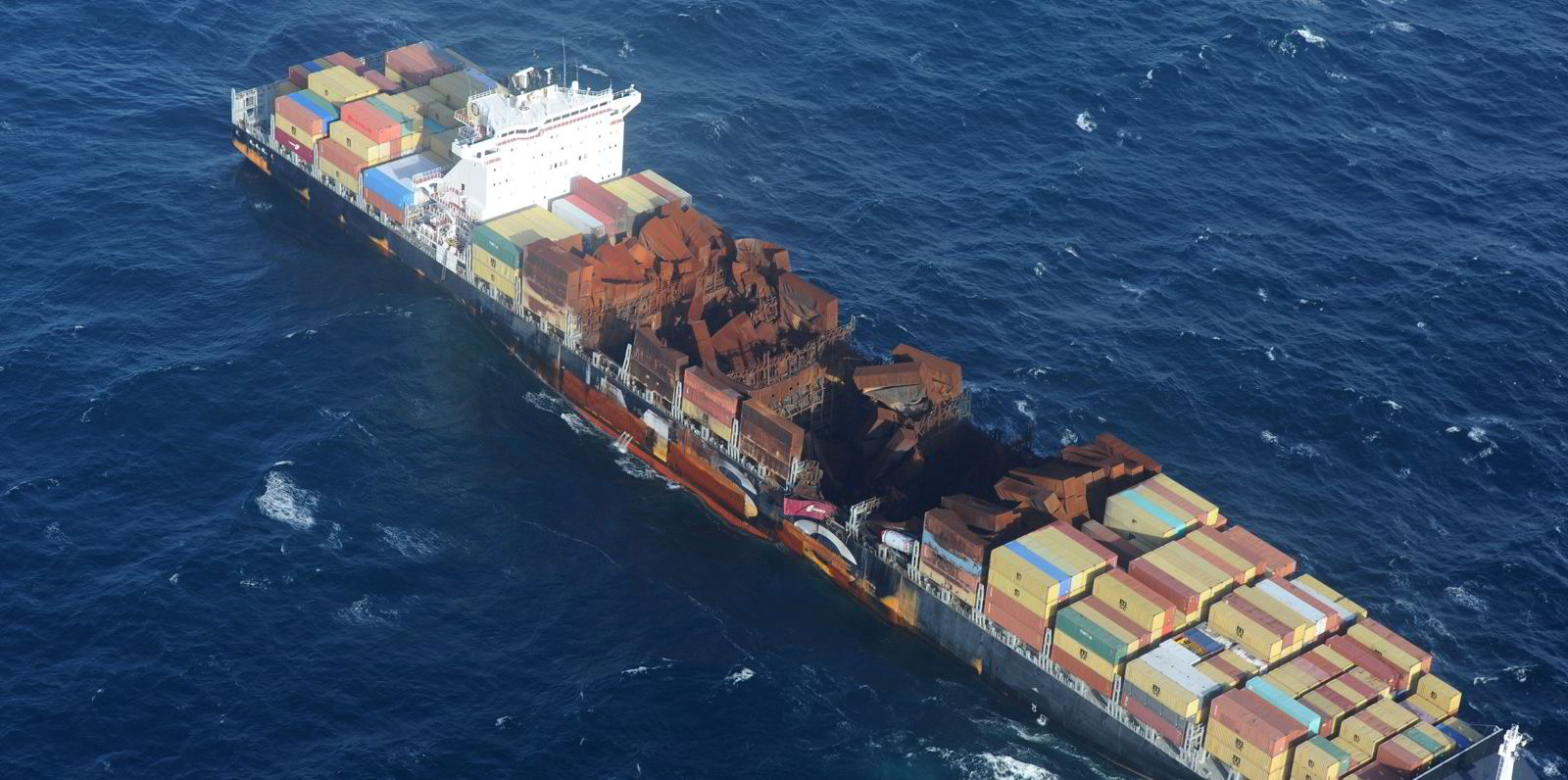The multi-jurisdiction legal fight over the 2012 blast that rocked the MSC Flaminia has more legs to it after more than a decade as new manoeuvres keep it alive in the US and as a UK appeals court prepares to rule.
Stolt Tank Containers and Deltech, the chemical maker whose cargo has been blamed for sparking the explosion, have asked the US Second Circuit Court of Appeals to reconsider a decision leaving them on the hook for the casualty.
As TradeWinds has reported, that court decided in late June that the two companies were liable for the explosion and fire on the 6,732-teu container ship MSC Flaminia (built 2001) that was sparked by a Deltech cargo of divinylbenzene (DVB) shipped in three Stolt containers.
The tank container company’s Oslo-listed parent, Stolt-Nielsen, has set aside $155m as a result of the decision, which found that Swiss charterer MSC Mediterranean Shipping Company, technical manager NSB Group and shipowner Conti were not negligent in the explosion.
Court records show that Stolt and Deltech have now asked for an “en banc” hearing, in which all of the circuit court’s judges reconsider a decision by the initial three-judge panel.
The companies’ lawyers have argued that for decades, the US Carriage of Goods by Sea Act required ocean carriers to heed shippers’ warnings no matter how they were communicated.
And they said the Harter Act bars ocean carriers from seeking full indemnification for the consequences of their own negligence.
“The district court and panel opinions are contrary to both principles,” they said, arguing that the appellate judges’ decision is erroneous as a matter of law.
‘Dangerous’ legal errors?
“The combination of these legal errors dangerously relieves carriers both of the duty to heed warnings and instructions that they receive and of the responsibility for losses resulting from carrier’s disregard of such warnings.”
Deltech’s lawyers at Hunton Andrews Kurth lawyers and Stolt’s lawyers at Nicoletti, Hornig & Sweeney argued that MSC improperly stowed the DVB, which needs to be cooled to avoid explosion, next to another heated cargo and the ship’s heated fuel tanks. And they alleged that it ordered its New Orleans Terminal to ignore special instructions from shippers outside a dangerous goods declaration.

The Second Circuit panel, however, concluded that Stolt and Deltech were negligent for failing to warn of the cargo’s hazards in that document. They also ruled that a warning in the master bill of lading instructions was not enough to put MSC on notice of the dangers of DVB.
The panel made up of judges Denny Chin, Susan Carney and Steven James Menashi was unanimous on most points.
But Menashi disagreed with parts of the majority’s opinion, including the conclusions that MSC was not negligent and that the liner giant was entitled to full indemnification.
Negligent?
“The district court concluded that MSC was not negligent at all. That was erroneous,” he wrote. “Even if Deltech and Stolt had duties to provide additional warnings and failed to discharge those duties, MSC received information concerning the stowage of DVB-80 but failed to heed those warnings.”
Legal action also continues in the UK, where MSC is appealing a decision allowing it to cap damages awarded to German companies NSB and Conti, according to a letter filed in a New York federal court by Nicoletti, Hornig & Sweeney’s John Nicoletti.

The case focuses on an arbitration award holding MSC liable to Conti to the tune of $200m.
The London-based Court of Appeals heard arguments on 11 and 12 July in that case.
“A decision by the UK appellate court may have a significant effect on the arbitration award and MCS’s dollar liability to Conti and NSB,” Nicoletti said. “That decision may also reduce the Stolt and Deltech defendants’ liability in this action.”
Read more
- Tanker IPO may be delayed but don’t doubt Stolt-Nielsen’s earning power, Clarksons says
- Editor’s Selection: IMO misses open goal, counter-cyclical Greeks buy into dry bulk and Iran snares tanker
- Niels Stolt-Nielsen tackles ‘horrible’ Flaminia fall-out amid tanker IPO questions
- US courtroom defeat torpedoes what would have been a record quarter for Stolt-Nielsen
- ‘Disappointed’ Stolt-Nielsen sets aside $155m after losing appeal over MSC Flaminia fire




